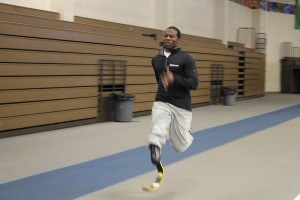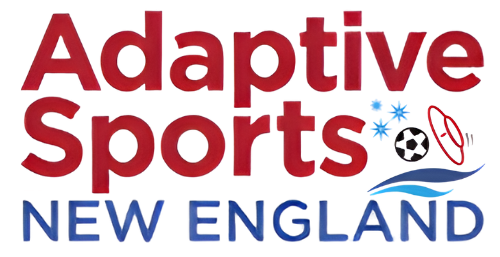Sometimes success isn’t an individual achievement. As they say, it takes a village to raise a child; but in Jerome Singleton’s case, a supportive family, good friends and personal determination are all he needed to become the international Paralympic track and field athlete he is today. The Paralympic Gold medalist has now taken it upon himself to give back to young athletes who are in the same place he once was. Whether it’s coaching young kids or training alongside up-and-comer Femita Ayanbeku, Jerome aims to be an inspiration on and off the track.
 As a young child, Jerome and his peers never focused on his disability, only on his capabilities. “My friends saw me as Jerome”, reminisced Singleton. “If I’m competitive, then they’re going to compete with me.” Singleton did not face any setbacks competing with and against his able-bodied peers in high school. With letters in football and track, his great athletic abilities neutralized any possible disadvantage, making the switch to Paralympics not as appealing as competing with his friends. It was in college that he discovered and researched the Paralympics and decided to explore this new competitive arena. Although he didn’t make the first team he tried out for, he wasn’t deterred from aiming to “do well in the world”.
As a young child, Jerome and his peers never focused on his disability, only on his capabilities. “My friends saw me as Jerome”, reminisced Singleton. “If I’m competitive, then they’re going to compete with me.” Singleton did not face any setbacks competing with and against his able-bodied peers in high school. With letters in football and track, his great athletic abilities neutralized any possible disadvantage, making the switch to Paralympics not as appealing as competing with his friends. It was in college that he discovered and researched the Paralympics and decided to explore this new competitive arena. Although he didn’t make the first team he tried out for, he wasn’t deterred from aiming to “do well in the world”.
Motivational support from family and friends is something Singleton highlights as a factor of his success. With an athletic upbringing, Singleton had the full support of his parents (his father was commissioner of South Carolina High School League) and his sister, a hurdler in high school. When Singleton thinks of kids that are currently in his old shoes, he believes that it’s “very imperative that you compete with your friends because trying to join adaptive sports or Paralympic sports – it’s going to be tough if you can’t compete with your friends.” Having this support helped him embrace his disability, and he hopes that others can see him and hope to be better.
Femita Ayanbeku is the 22-year-old sprinter that Singleton met at a Challenged Athletes Foundation event in the Fall. A former basketball player, Ayanbeku was given a running prosthesis at the CAF’s Mobility Clinic. A quick chat led to the sibling-like relationship they’ve fostered today. “The one thing that I always really wanted when I first started was a mentor who would’ve been there for me and really let me know the ropes instead of finding it out later or like shortening my learning curve,” said Singleton. As his protégée, he’s is trying to give Ayanbeku the experienced support that he did not have. When thinking of his legacy, Singleton wants to ensure that “there’s someone else there to carry that torch and take this movement further past 2020.” For Mita, it’s “really encouraging because he understands.” This is an opportunity for her to compete with other young athletes with similar struggles while training with a pro that’s been through it all.
The lifelong relationships that grow from sports are fundamental to athletes and their development. Supportive friendships and a strong familial foundation are keys to success. Whether it’s grade school friends overlooking physical differences or experienced athletes grooming future generations, the opportunity must be there for Paralympic athletes to succeed.
If you live in the Greater Boston area and you have a physical disability or a visual impairment, we’d love to meet you at the upcoming Paralympic Experience, happening on April 24, 2016 at Boston College High School in Dorchester. The Paralympic Experience is a one-day, multi-sport, introductory clinic for youth and adults to try Paralympic sports and to meet staff from adaptive sport programs from Boston and across New England. For more information and to register, please visit our Eventbrite page. We hope to see you there!



Comments are closed